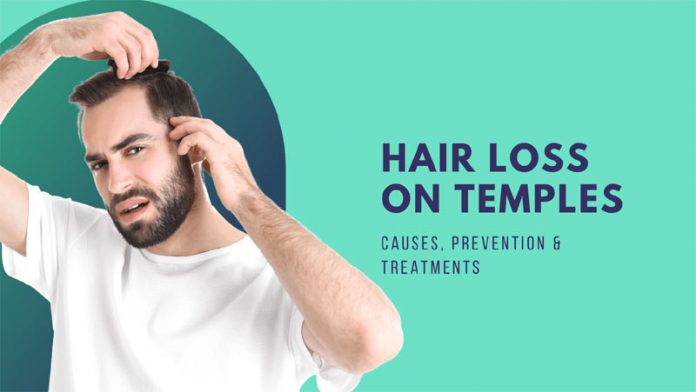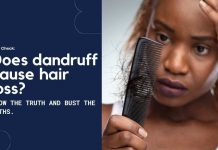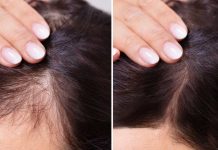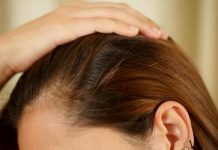Are you facing a tough time covering up those scanty patches on your temples? Though losing hair along the hairline at the temples is considered a sign of aging, a condition like androgenetic alopecia is now commonly found among teenagers and people in their 20s to 40s. In addition, there are more reasons why your hairline might be receding along the temples, ranging from hormonal imbalances to lifestyle choices. However, to identify the exact cause behind hair loss in temples, we must delve deeper into understanding temple hair loss better.
What Is Temple Hair Loss?
Hair loss on temples refers to hair loss and thinning along the temples, which causes visible bald spots over time. Studies (1) indicate that the issue of temple hair loss is found chiefly among males aged between 18 and 50 years. The study results showed 60.3% of the men experienced severe hair loss while 60.3% had baldness. Factors like stress, hereditary, excess use of hair styling products, or wearing tight hairstyles can contribute to temple hair loss. Therefore, the first step to reverse or stop such hair loss in the temples is identifying its cause.
What Are the Causes of Hair Loss at the Temples?
1. Age Factor
As you age, the hair follicles at your temples shrink in size and lose the ability to trigger new hair regrowth. In addition, hair density is very low on the scalp, so hair loss is immediately visible in this area. The distinctive V-shaped look on your temples is an indicator of temple hair loss induced by the aging factor.
2. Lack of Nutrition

The food you consume has a vital role in improving your hair health. If your diet doesn’t have enough vitamins or proteins, the hair follicles will weaken and shrink in size due to poor nutrition. Ensure your diet has a mixture of proteins, vegetables, fruits, nuts, and seeds to enhance the health of your hair follicles.
3. Too much Stress
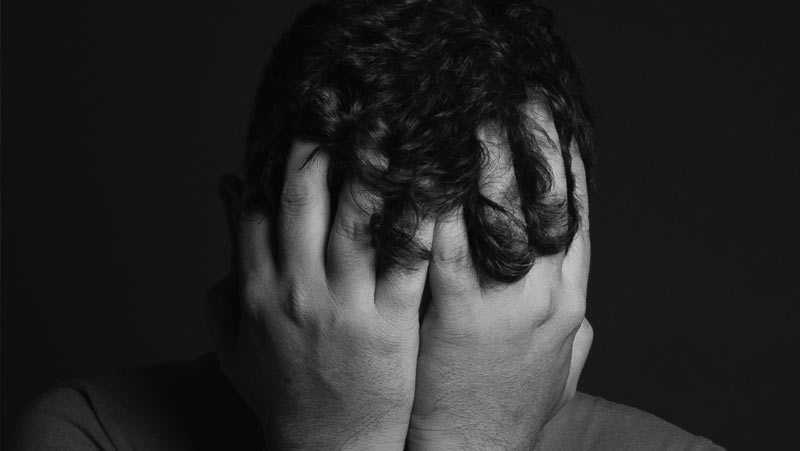
If you are following a sedentary lifestyle or have a tight work schedule, it can put your body through a lot of stress, affecting your hair health directly. Chronic stress levels often induce hair issues like Telogen Effluvium and Alopecia Areata. Recent research (2) showed that when the stress hormone-producing adrenal glands were removed, it improved the rate of hair growth and regeneration of hair follicles despite aging. The result of the study revealed that stress is a primary culprit behind severe hair loss.
4. Genetics
Genetics is also a significant cause of this hair loss pattern if you have a family history of temple hair loss. A hereditary factor may cause this type of hair loss if one or both of your parents has temple hair loss.
5. Polycystic Ovary Syndrome or PCOS
Polycystic Ovary Syndrome condition causes the development of cysts on enlarged ovaries. As it messes with your reproductive hormones, temple hair loss is one of its symptoms. PCOS (3) may cause hair loss in the following patterns:
- Hair loss on the scalp leads to less hair density
- Severe hair loss on the temples
- Hair fall and thinning on the crown area
6. Androgenetic Alopecia
When the levels of androgen hormone increase, it often causes temple hair loss among men. In women, this condition triggers diffused hair loss patterns, and for men, it is more pronounced.
7. Alopecia Areata
Also known as the female baldness pattern, this condition is an autoimmune disease that causes your immune system to attack the hair follicles. If you have this condition, you will have fine hair on the temples and crown.
8. Frontal Fibrosing Alopecia
If you have this medical condition, the front part of your head and temples experience severe hair loss. Also called scarring alopecia, it destroys your follicles and indices inflammation among women going through menopause.
9. Smoking

Habits like smoking (4) can promote free radical production in the body, which in turn kindles follicular keratinocytes for producing cytokines such as interleukin. These cytokines decrease blood circulation, lead to follicle inflammation, and trigger hair loss.
10. Medications
If you are taking medications to get relief from chronic medical conditions that may include antidepressants, beta-blockers, NSAIDs, and oral contraceptives, it can cause temple hair loss.
Symptoms Of Temple Hair Loss
If you are experiencing the following symptoms, it indicates that you have hair loss at the temples.
- Experiencing hair loss near the temples
- Hair thinning around the crown
- The hair parting appears wider in the later stages
- Hair regrowth has spurts of fine hair that exposes the scalp area
- The temple hairline appears receding and develops bald patches
Treatment Options for Hair Loss at Temples
Hair loss at the temples can be treated effectively with the following treatments:
- Medications
- Oral finasteride (5) medications can induce new hair growth and combats hair loss near the temples, reveals a study. It is mostly used as a treatment for male hair loss patterns.
- Biotin supplements with vitamin B7 will be prescribed for stopping temple hair loss. You can see improvements in 6 months of regular intake of this supplement.
- Topical Solution: Minoxidil solution is prescribed for hair loss at the temples for men and women. It slows the hair loss rate and triggers hair growth in bald spots.
- Laser Treatment: Your dermatologist may prescribe laser therapy for treating this type of hair loss to kindle fresh hair regrowth and to stop hair from falling.
- Platelet Rich Plasma Treatment: The Platelet Rich Plasma (6) method is an effective treatment for temple hair loss and alopecia. Hair regeneration is encouraged by extracting the plasma from your blood and injecting it into the temples.
- Hair Transplant: If you are facing drastic hair loss at the temples, your doctor may prescribe a hair transplant procedure. It involves extracting healthy hair follicles from the healthy part of your scalp and replanting it along your temples to trigger hair regrowth.
Prevention of Hair Loss at Temples
Temple hair loss can be prevented by following these tips:
- Do not tie your hair into high ponytails or other tight hairstyles, as constant pull will weaken your hair follicles
- Follow a diet of vegetables, fruits, omega-3 fatty acids, vitamins, and proteins.
- Lower the frequency of opting for chemical bleach, and other chemical treatments
- Do not use hair heating products and hair styling products
- Change the hair frequently parting if you are facing hair loss at the temples
- Use a mild shampoo with a herbal formulation to wash hair
- Do not expose your hair to direct sunlight
- Stay hydrated
- Get regular hot oil massages to strengthen your follicles
- Avoid alcohol consumption and smoking
- Get enough sleep every day
- Keep your hormone levels under check
- Practice yoga and meditation to keep stress away
Hair loss at the temples can be treated, but seek professional help at Kolors Healthcare hair care clinic as soon as you detect it. Your hair follicles will be active during the early stage, giving you time to reverse it quickly. Our dermatologist will help you identify the underlying cause and perform tests to understand its severity. Then the doctor will prescribe the correct type of treatment to treat it effectively.
References
- Journal of Clinical and Diagnostic Research – https://www.researchgate.net
- NIH Research Matters – https://www.nia.nih.gov/news/how-stress-causes-hair-loss
- Department of Dermatology, Massachusetts General Hospital, Boston, MA – https://www.ncbi.nlm.nih.gov/pmc/articles/PMC8291365/
- Department of Dermatology, NH MMI Hospital, Raipur, Chhattisgarh, India – https://www.ncbi.nlm.nih.gov/pmc/articles/PMC9069908/
- Adis International Limited, Mairangi Bay, Auckland, New Zealand – https://pubmed.ncbi.nlm.nih.gov/9951956/
- Plastic and Reconstructive Surgery Department, University of Rome – https://www.ncbi.nlm.nih.gov/pmc/articles/PMC4622412/

